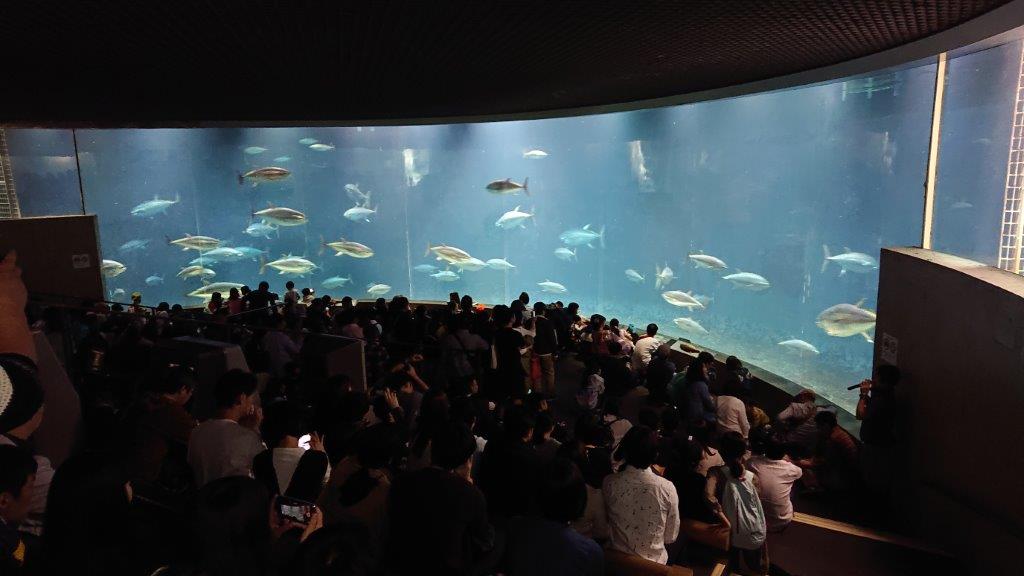An introduction page for my volunteer group have been updated and our basic principles have been released. In the same time of the launch of our recruiting for the next fisical year, I write my opinion for our current principles. *Since following is not an official statement, but my individual view.*
I consider our principles as “the common statement for members to ask, and also for all stakeholders to communicate.”
Objectives of principles
My group provides “talks about animals in front of the tanks.” When I simply describe what kind of talks we provides to someone, I often say “the new viewpoints to observe animals together.” This expression well explains our activities, so many people can understand about us. However, we cannot share easily imaginations how those activities make impacts with people.
I regards our principles as the common statement to discuss “What the objective of our activities? For whom? And what kind of value have been made?” This principles is the fruit of passion by our motivative members. Most of about 150 members may have intersections of thier mind and this principles, even if all members cannot sympathize completely with them.
Vision (what things might be like) : “A society whose people can feel preciousness of various animals and the environment forever”
Mission (social responsibility) : “To get pleasure together, To study, To link”
1. To get pleasure together : To develop understanding and interest for animals and the environment with people through observations of animals.
2. To study : To enrich our contents to guide with the aquarium for more delightful observations.
3. To link : To link animals to visitors by cooperating with education activities by the aquarium.
(Animals / Environment)(T.S.V. / TSLP)(Visitors)
Interpretation of principles
Our “Mission” is the detaild principles and shows our activities directly.
Let us say simply about our activities as “to observe exhibiting animals and to share discovered fun with visitors.” That is, I suppose the word “people” of the first element “To get pleasure together” contains not only visitors but also volunteer members ourselves. Moreover, I believe people must not finalize their studies inside the aquarium, and need to continue those till outside the aquarium. The real social value of our visits of the aquarium may be changing our actions in everyday life. Volunteer members must keep to study by themselves to impact people’s mind by causing to feel preciousness and attachment for various animals and the environment.
The strength of the volunteer activity is gathering of people with various characteristics. The uniform way cannot impact all people’s mind. Someone is good at logical and persistent explanation, and someone else is good at delicate snuggling into sensitive children. Construction of the activity by everyone with their each characteristics is the most powerful strength of citizen commitment.
Our “Vision” is the ideal society as the result of the achivement of the mission.
As we can understand from our annual recruiting information, most of our volunteers have joined not by sympathyzed with our visions, but interested in our activities simply. Thus, perhaps this vision may be little more than idealism, and we can find more accurate expression. For this assumption, we need to discuss qualitatively and quantitively “Do we really need to pursue this vision? Are we really pursuing it?”
Location of principles
We may not find answer easily for the complex question of “validity and feasibility of our vision.” However, confronting this question is extreamly important to make our activities clear if they are not only self-satisfaction, but also production of social impacts. Otherwise, even I, anyone cannot find reasons to sustain this organization, and the organization cannot fulfill their responsibility for the aquarium and people.
Basically, everyone with will and enthusiasm can join us even if they do not have enough knowledge of animals and skill of guides. But studying by themselves (input), executing what they have studied in the field immediately (output), making the standard value based on their own interpretation for our vision (outcome) and repeating this cycle are the least responsibility for social people, and they collects additional contributions from people.
Moreover, their own attitudes of asking to them and persuing results should work well for facing to the fundemental question “Do we really need aquariums and zoos?” Such the attitude is the extreamly basic thinking process not only for the aquarium industry or the environmental education activity, but also for every (especially non-profit) works on social problems.
Basic principles is not static but reviced and grown along the trends. Especially, the time which people will ask “importance of aquariums and zoos’ existence” to us. Our volunteer group shall use this principles to make a habit of wondering to ourselves, not to be in a panic at that time.



コメント